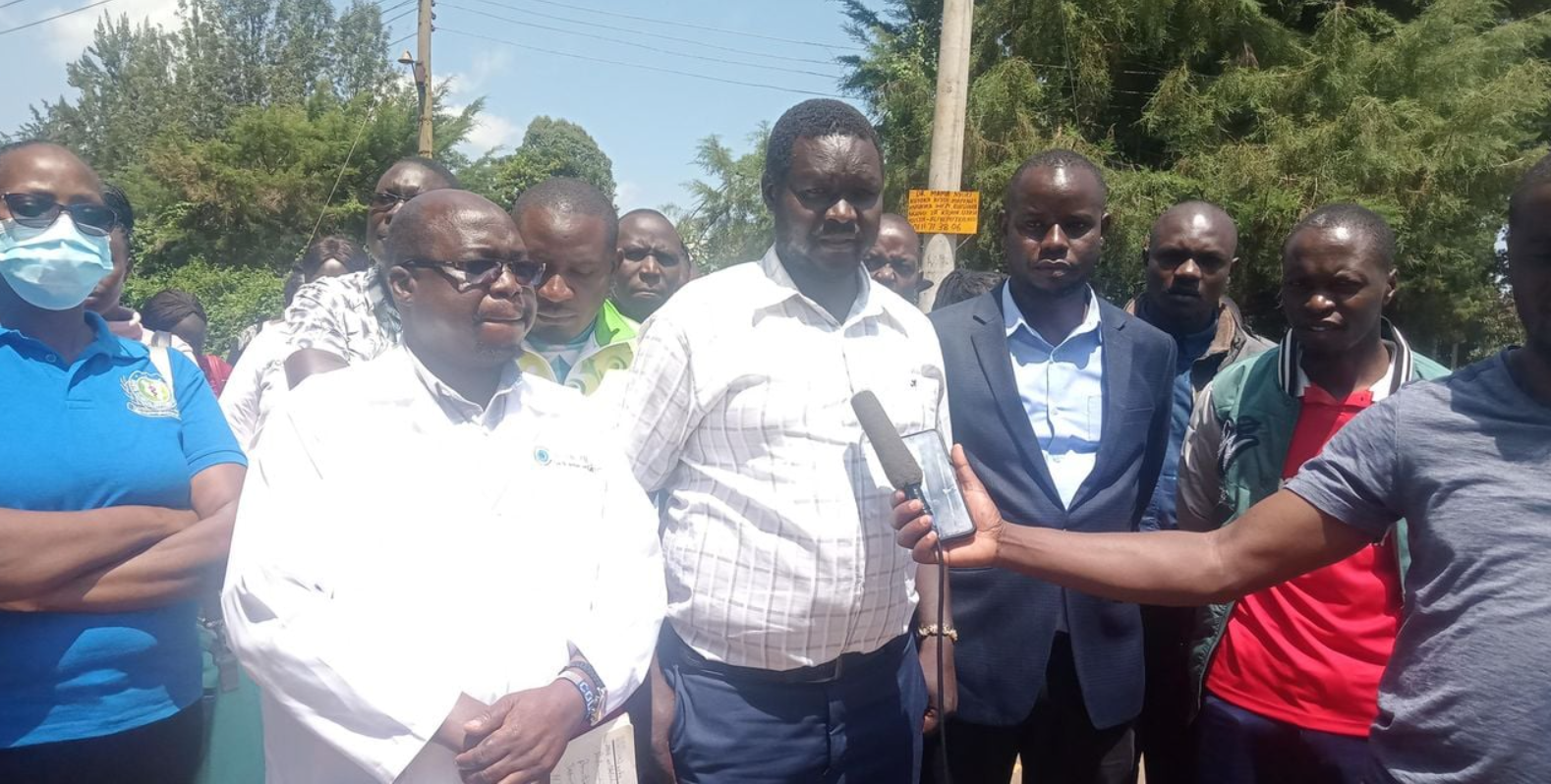
After six weeks of silent hospital corridors and desperate patients, nurses in Trans Nzoia have returned to work, even as the county battles a deepening financial crisis that threatens the very gains they have fought for.
Healthcare services have resumed in the county after nurses called off their 42-day strike to give room for structured negotiations with the county government.
The nurses had downed their tools on August 8, bringing operations to a standstill in more than 90 healthcare facilities across the county.
A return-to-work agreement was signed between top county officials, led by County Secretary Ms Truphosa Amere, and officials from the Kenya National Union of Nurses and Midwives (KNUNM), led by Branch Chairman Cyprian Nyakundi and Secretary Edward Cheruiyot.
The agreement sets clear timelines for implementing the demands raised by the union.
A major sticking point in the dispute was the delayed recruitment of 134 nurses whose appointment letters had been suspended due to a court order from the Employment and Labour Court.
“Additionally, the County Government should explore an avenue to resolve the matter in court as soon as possible to allow the appointment of the 134 nurses earlier recruited by the County Public Service Board (CPSB),” said Mr Cheruiyot.
The union has also demanded the recruitment of 50 additional nurses by January next year to replace those who have exited service, a gap that has strained the existing workforce.
“First phase of replacement will cover the entire number that will have exited service between June 2025 and May 2026. Thereafter, replacement will be on a quarterly basis,” said Mr Cheruiyot.
He estimated that the replacement figure could be between 60 and 80 nurses in that period, in addition to the 50 new nurses expected by January 2026.
The return-to-work deal followed extensive negotiations between the union and Governor George Natembeya’s administration, brokered by County Labour Officer Mr Toffick Nalianya.
Mr Cheruiyot said the agreement also includes full payment of remuneration arrears, including uniform and risk allowances, to be paid in three phases of Sh5,000 per year, amounting to a Sh15,000 increment by the 2027/2028 financial year.
The nurses accepted an offer of Sh10,000 as Nursing Services Allowance to be paid over three years. They also received a Sh1,150 top-ups to their risk allowance.
According to the agreement seen by Daily Nation, the county government will also establish a Collective Bargaining Agreement (CBA) negotiation committee to spearhead talks for the 2025–2029 CBA.
Further, the administration pledged to remit all third-party deductions by the 9th of every month and assured that no disciplinary action would be taken against any of the more than 400 nurses who participated in the strike.
But while the agreement marks progress, it comes amid mounting fiscal challenges for the county.
As of Monday, Trans Nzoia County workers had not received salaries for two consecutive months.
A senior county official revealed that the administration is struggling to comply with the Controller of Budget guidelines to ensure the timely disbursement of funds.
He said that approvals under the new financial system had been delayed, severely affecting operations.
“So far, we have only received one exchequer for July from the National Treasury, and this has affected our operations,” the official added.
The county government employs approximately 3,700 workers all of whom remain unpaid for the months of August and September.
The nurses’ strike was driven in part by the union’s call for full implementation of long-standing recommendations from the Salaries and Remuneration Commission (SRC). These include raising the risk allowance from Sh3,850 to Sh5,000, gradually increasing the uniform allowance from Sh10,000 to Sh25,000 over the next three years, and increasing the Nursing Service Allowance from Sh20,000 to Sh30,000.
In addition, the healthcare workers demanded enforcement of several pending circulars aimed at improving working conditions and ensuring fair treatment.
Compounding tensions was the county government’s alleged failure to remit statutory and non-statutory deductions on time, a lapse that has attracted financial penalties and severely eroded trust between the union and the employer.



